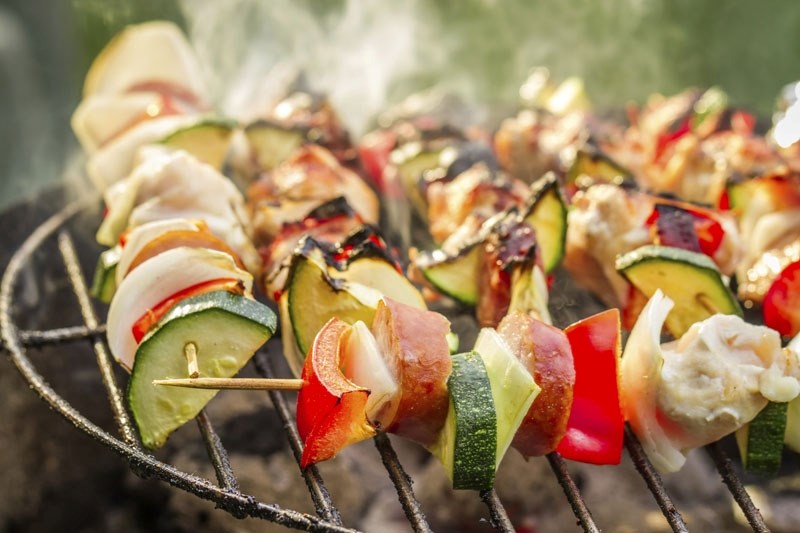Canadians love to grill.
And rightfully so – there’s nothing quite like a summer barbecue with family and friends.
So I know being told to limit barbecuing meat can be tough to hear. But studies have shown that eating a lot of well-done and charred meat cooked at high temperatures may increase your risk of developing certain cancers, such as colorectal cancer.
That’s because cooking meat, poultry and fish at high temperatures – including barbecuing, broiling and frying – creates chemicals that are associated with an increased risk of developing cancer.
I’m not telling you to stop grilling outright – instead, cut back on how much barbecued meat you eat.
And when you do fire up the barbecue, follow these Canadian Cancer Society tips to safely prepare your grilled food:
Marinate meat, poultry and fish in vinegar or lemon juice and your favourite herbs before cooking. This will reduce the formation of the chemicals that increase the risk of cancer.
Choose lean cuts of meat, poultry and seafood over higher-fat meat, and trim off any visible fat (including the skin from poultry). This will reduce the amount of harmful chemicals from the smoke created by burning fats.
Barbecue slowly and prevent charring by keeping the food away from the hot coals so that flames are less likely to engulf the food.
Skewer a kebab. Smaller cuts of meat cook faster, which means there is less time for chemicals to form.
Partially cook your meat before throwing it on the grill. The less time your meat is on the grill, the less it will be exposed to chemicals.
Bonus tip: Learn to enjoy slow cooking. Choose to cook your meats at lower temperatures by braising, stewing, steaming or roasting more often. Then serve with a side of barbecued vegetables – most experts agree plant-based foods do not form cancer-causing chemicals when cooked at high temperatures. Grilled fruit is also delicious for dessert.
For more cancer prevention tips, please visit the Canadian Cancer Society online at cancer.ca.




